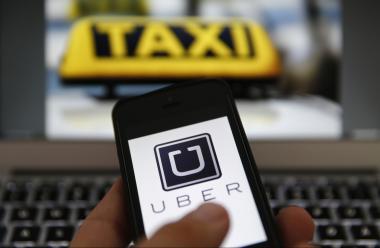FMCG marketers have been facing maturing and gradually stagnating markets in developed countries for decades. These markets are facing saturation: there are limits to how much washing powder, toilet paper, cleaning liquids, etc, any household can buy. In addition, these markets are becoming commoditised with the onslaught of the discount supermarkets. In a world where consumers have so many more exciting things to spend money on, savings in the low involvement household goods is inevitable.
Premiumness can be maintained but with difficulty: for many brands it’s just too late.
Obviously innovation is essential and it is true to say that companies like P&G and Unilever have a sound record in innovation, albeit within a very narrow range: new ingredients, smells, packaging forms and designs, occasionally a breakthrough advertising campaign such as Dove. But nothing on the scale of the dramatic innovations in the electronic world.
These two worlds could be thought of as totally separate and the kind of minimal innovation perfectly sufficient in the low involvement world of FMCG.
But both the digital world and the coming of new service based business models are bringing these two worlds uncomfortably closer together. Two articles in the March issue of Market Leader begin to point in a totally new direction and should raise red flags for FMCG CEOs.
One article looks at the issues the digital world has thrown up which are twofold: how to incorporate digital into marketing strategies long accustomed to TV only; but more important and more difficult, how to incorporate the talents of the tech world into product innovation in a world where the Internet of Things will expand exponentially?
The other article deals with new business models – made possible by apps – based on the Uber model: the provision of services cheaply that will eventually expand well beyond cheap taxi rides into the provision of household care services. Two start-up companies in the US provide clothes washing services cheaply and quickly at the touch of an app.
These game-changing developments lead to issues to do with the kinds of people the traditional FMCG companies will be able to recruit.
Once upon a time, the top graduates went to FMCG. This is hasn’t been the case for a long time but the lure of the finance world and consultancy is minimal compared with the lure of tech companies and tech enabled service start-ups. Graduates want to be part of this new digitally empowered and creatively satisfying world. In future this will be even more the case since everyone is growing up digital and the quirky, eccentric techie stereotype of inventing in his garage will be less prominent when everyone knows how to do it.
This leads to a crucial point to do with culture. FMCG companies have cultures dramatically different from tech companies or business model innovators. They are essentially characterised by silos and hierarchies: slow and often fearful. Thus they are in danger of recruiting risk adverse people comfortable in this relatively stable environment. The cultures of the digital giants (and indeed start-ups) are entirely the opposite. Freewheeling, inventive, curious and fun - always brainstorming, always in beta. What FMCG companies need to do is to find ways of incorporating these energies and working methods into their world.
The Unilever Foundry is the most recent example of a virtual network of tech start-ups that link with Unilever in a very exciting ways. Other companies may well be doing the same or thinking about it. FMCG companies have been trying to harness radical innovation skills for years – usually not very successfully largely because of the dead weight of the core culture. With more digitally equipped people gradually working their way into management, it should be possible to incorporate the skills and the culture of the tech world that goes along with it.
I suspect this may be much harder than it looks.
Read more from Judie in our Clubhouse.
Newsletter
Enjoy this? Get more.
Our monthly newsletter, The Edit, curates the very best of our latest content including articles, podcasts, video.
Become a member
Not a member yet?
Now it's time for you and your team to get involved. Get access to world-class events, exclusive publications, professional development, partner discounts and the chance to grow your network.

